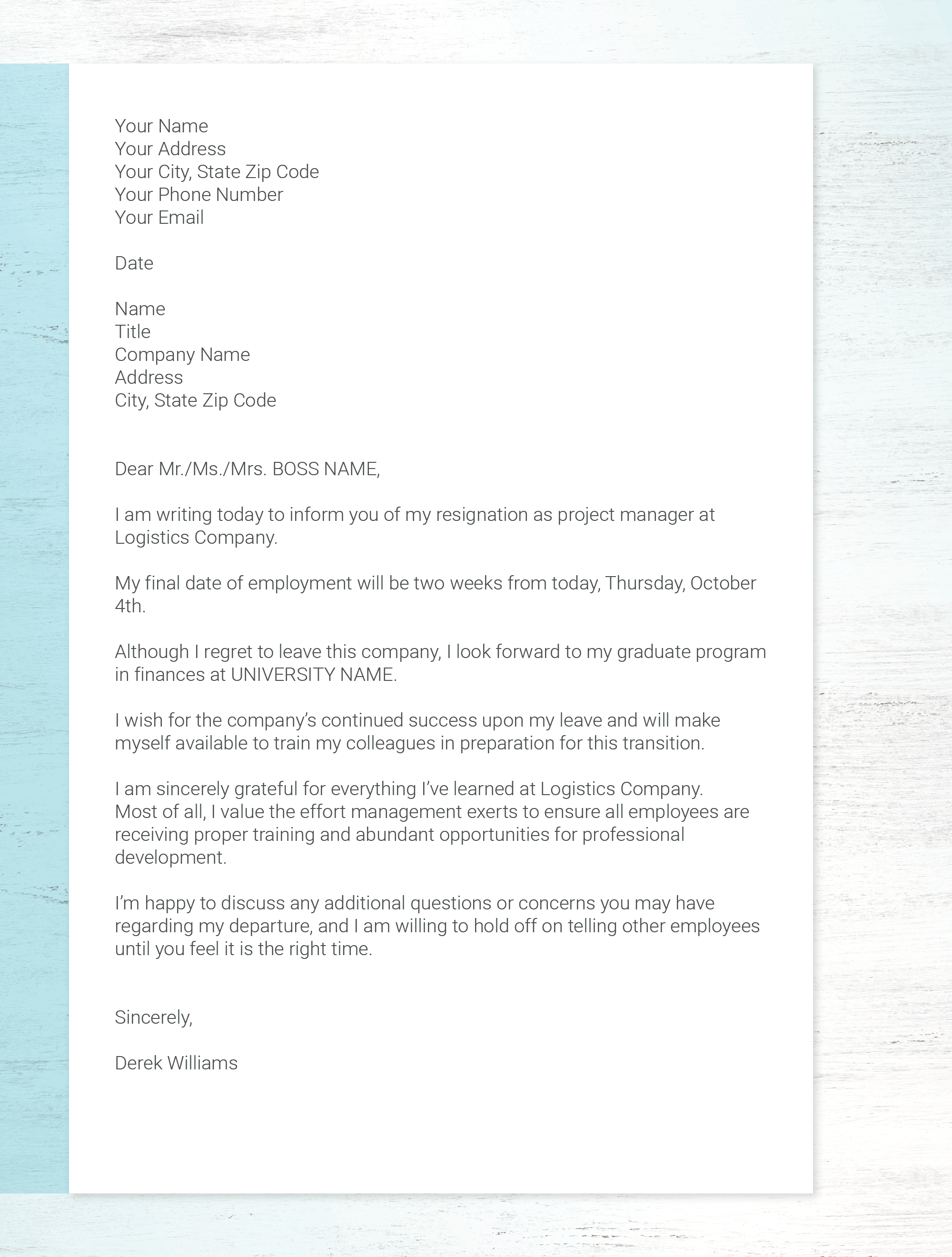A two-week notice letter is your way of notifying a manager or mentor that your time with them is coming to a close.
It's similar to a resignation letter in that it's a form of professional communication that signals the end of your tenure with an organization.
If you're ready to put in your two weeks and begin your professional journey elsewhere, follow these instructions.
Why give two-weeks notice?
Giving your two-weeks notice maintains positive professional relationships and communicates a company's need to replace or re-strategize around existing roles and responsibilities.
Why a two-week notice letter is important
When you quit a job or internship, the responsibilities you had either need to be passed on or paused. Providing notice of your leave allows a company to figure out a plan in your absence.
It's also considered a sign of respect to inform a manager or mentor of your leave prior to your last day. It's a good idea to write a two-week notice letter if you intend to utilize these work relationships in the future.
Two weeks is standard business practice. It's important to understand that managers don't have to keep you on for two weeks after you've given notice. When putting in your two weeks, know that your employment could possibly end sooner.
Before you give your two-week notice
Before you quit your job, there are a few things to consider and prepare for. I've compiled the most important into a list so you can check them off as you go.
- Money: The most obvious aspect of quitting your job is that you won't have a job anymore. This means your company won't continue paying you after those two weeks are up.
Do you have money saved up for the time between jobs? Do you have a job all ready for you to jump into? Ensuring you're financially stable enough to quit your job is an important consideration.
- References: It's possible you'll want to use some of your current bosses or mentors as references at your new organization, or in the future. Be sure to quit in such a way that they would continually be willing to vouch for you as an employee.
Consider having a conversation with them and asking if they'd be willing to remain connected with you. It is important to consider how quitting might impact your existing network.
- New Job: Again, do you have a job lined up, and does it pay enough to cover the bills? How much time are you taking between jobs, if any? Even the most free-spirited person should be thinking about their next move when they quit their current job.
- Benefits: This is a big one. How will quitting affect your benefits such as healthcare, retirement, etc? If you're on monthly medication, insurance may not cover it until you've been at your new role for 90 or so days.
Before quitting your job, sit down and figure out how it's going to affect the benefits your current company provides.
- HR Conversations: In addition to all of this, you should consider the logistics of leaving your company. When do you have to return your work computer? Do you need to clear the device yourself, or will the company do it? Are you allowed to keep confidential files?
These are things you should discuss with an HR professional so as to leave with a clear understanding of your responsibilities.
Two-week notice example
Below is an example of a letter someone could reasonably turn in as their two-week notice letter. As you can see, it provides a final date of employment as well as a reason for leaving.
For more guidelines and standards on how to leave your company diplomatically, see my piece explaining how to write a resignation letter.

Noticeably different
Once you have quit your job, things will change. You won't see the same group of people anymore. You won't have exactly the same responsibilities you once had. You won't be able to grab your old snacks from your old kitchen, or fix your usual cup of coffee.
But the good news is you have your whole future ahead of you to develop new work friends, to work on a new perfect pot of office coffee.
So if it's time to leave, don't be afraid to let them know. And now that you're on the market, maybe it's time to familiarize yourself with a few more tools related to giving your two-week notice. Check out our career advice resource hub for more.

 by Grace Pinegar
by Grace Pinegar
.png) by Shreya Mattoo
by Shreya Mattoo
 by Alexa Drake
by Alexa Drake